A Middle East commitment to IMEC would counter China's regional influence
If given security guarantees from the US, it is hard to see how the Gulf states could not help implement IMEC, says RSIS academic James Dorsey. This may not disrupt their economic and trade ties with China in the short term, but they may be wary of constraints to strategic cooperation.
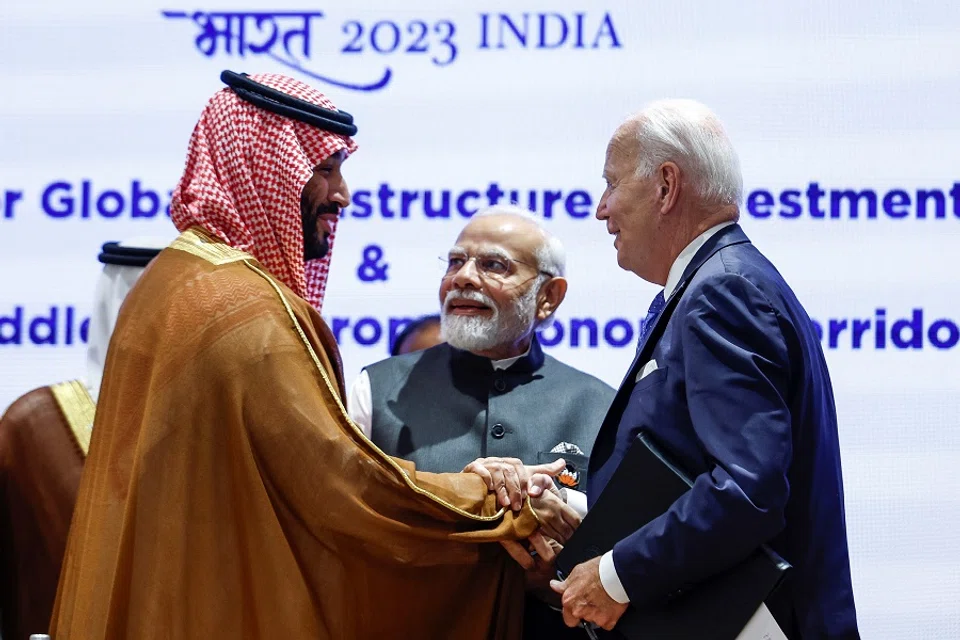
In 2017, Israel Katz, who was then Israel's transportation and intelligence minister, gushed about the merits of a Middle East freight railway network plan he had just proposed.
Six years later, Katz, now the minister for national infrastructure, energy and water, saw his plan expanded and endorsed at a recent G20 summit in the Indian capital, New Delhi.
Katz's proposal to revive an abandoned branch of the early 20th-century Hejaz rail that linked Haifa with Jordan was a pipe dream when none of the Gulf states was willing to openly engage with Israel.
The plan may still be a pipe dream.
Ambition of major players an obstacle
To be sure, Gulf state relations are no longer an obstacle. The United Arab Emirates (UAE) and Bahrain established diplomatic relations with Israel in 2020. Formal ties between Saudi Arabia and Israel are no longer a question of if but when.
Even so, the obstacles to the upgraded plan, dubbed the India-Middle East-Europe Economic Corridor, or IMEC, that would link India, Israel, Jordan, Saudi Arabia and the UAE to Europe in multiple ways, may be no less formidable.
Russia and Iran fear that the IMEC will detract from their 7,200-kilometre-long North-South Transport Corridor (NSTC)...
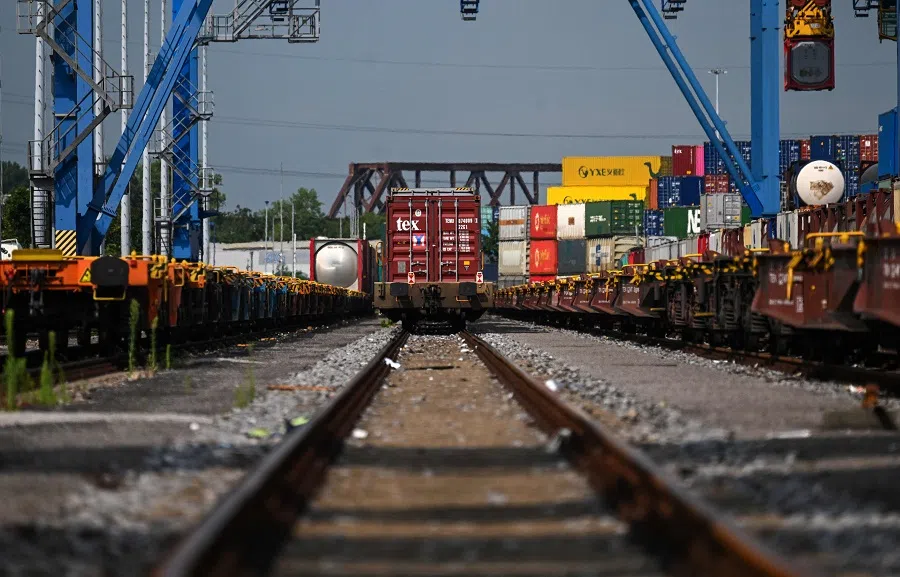
An array of powerful countries, including China, Russia, Turkey, Iran and Egypt, see the proposed rail, shipping, fibre optic, electricity and hydrogen corridor as a potential competitor and/or threat to their various no less ambitious alternative plans.
Officials and analysts widely see the IMEC as a potential response to China's troubled Belt and Road Initiative (BRI), for which multiple Middle Eastern nations, including Saudi Arabia, the UAE and Egypt, have signed up.
Russia and Iran fear that the IMEC will detract from their 7,200-kilometre-long North-South Transport Corridor (NSTC) that would link India, Iran, Azerbaijan, Central Asian states and Russia to Europe.
For its part, Egypt is concerned that the IMEC could divert traffic from its strategic Suez Canal, particularly if shipping through the corridor proves to be quicker, cheaper and more energy-efficient than through the canal. Egypt expanded the canal in 2015 at a cost of US$8 billion.
The corridor's detractors have no control over what could determine its viability: the potential establishment of diplomatic relations between Saudi Arabia and Israel.
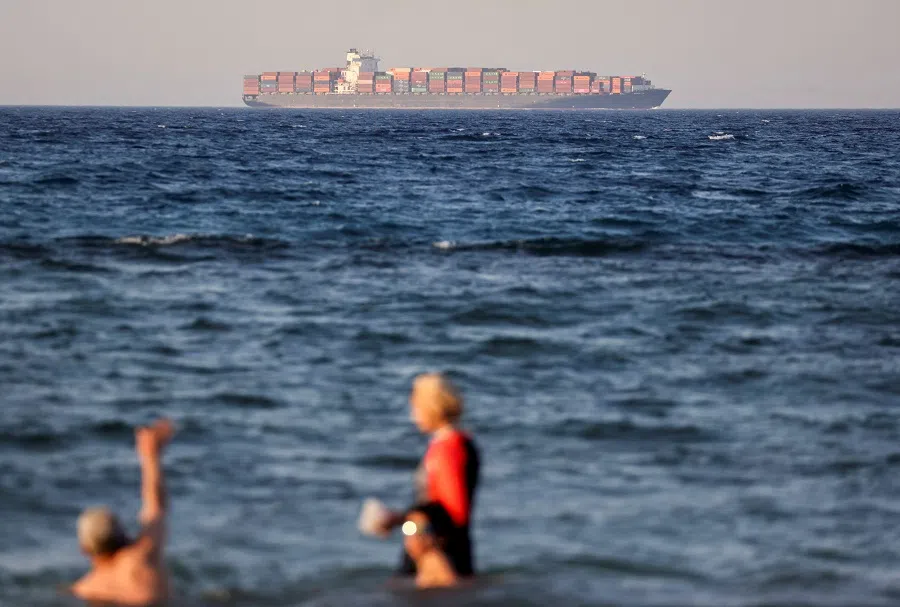
In response to the IMEC announcement, Turkish President Recep Tayyip Erdogan insisted that any east-west corridor needed to traverse Turkey. Erdogan was reportedly discussing alternatives with Turkey's partners.
Crux: diplomatic relations between Saudi Arabia and Israel
The problem for IMEC's detractors is the elephant in the room. The corridor's detractors have no control over what could determine its viability: the potential establishment of diplomatic relations between Saudi Arabia and Israel.
Saudi Arabia has demanded security guarantees, if not a defence pact with the US, as part of a Saudi-Israeli deal. If Saudi Arabia gets its way, the UAE will not be far behind in tightening its security relationship with the US.
It's hard to see how the two Gulf states could not help implement IMEC once they upgraded their relations with the US.
Tighter security relations with the US would likely not disrupt the Gulf states' economic and trade ties with China but would limit their strategic cooperation with the People's Republic...
Speaking last month to Fox News, Saudi Crown Prince Mohammed bin Salman said that his country and Israel were getting "closer" every day to establishing formal relations. Israeli Prime Minister Binyamin Netanyahu was equally ebullient at the United Nations General Assembly.
Tighter security relations with the US would likely not disrupt the Gulf states' economic and trade ties with China but would limit their strategic cooperation with the People's Republic, even if they would probably test how far they can push the envelope. China is Saudi Arabia and the UAE's largest trading partner.
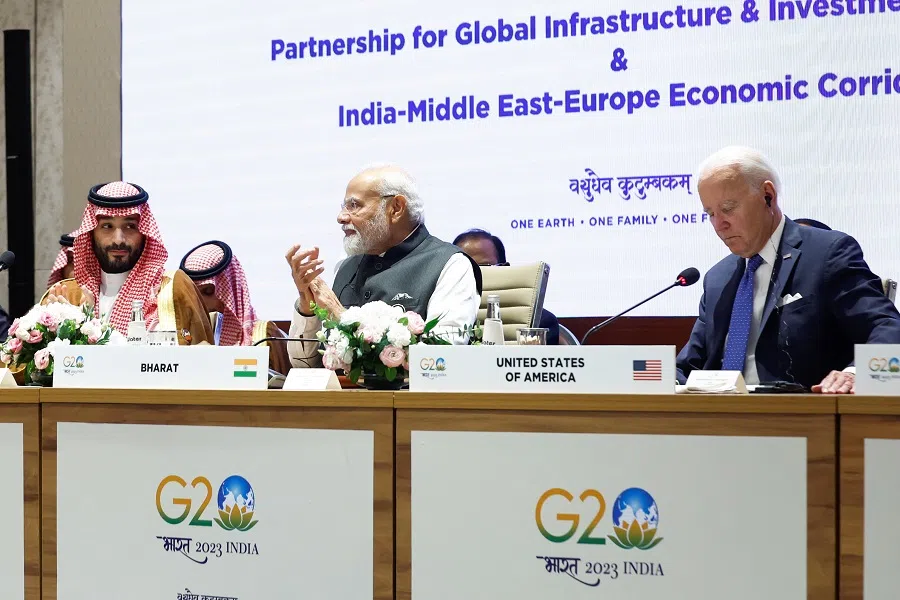
The kingdom "cannot have it both ways. If it wants that kind of commitment from the United States, it has to line up with the United States... If our security relationship with Saudi Arabia is to be deepened because the Saudis want it, then there are certain obligations that come with that," said former US diplomat and prominent analyst Martin Indyk.
Indyk spoke in March without reference to the IMEC, but his words equally apply to the corridor.
Countering China's regional influence?
In December, nine major telecommunications companies, including the UAE's Etisalat, India's Tata Communications, Saudi Telecom and Egypt Telecom, launched a fibre optic cable linking India via the Middle East to Europe. The line is set to become part of the IMEC.
At a news conference in Delhi to announce the IMEC, US President Joe Biden went out of his way to thank his Emirati counterpart, Mohammed bin Zayed.
"I do want to say thank you, thank you, thank you. I don't think we'd be here without you," Biden said, suggesting that the IMEC would not have happened without the UAE leader's input.
A Middle East commitment to the IMEC, in deed and word, would counter recent progress in expanding China's regional influence.
Similarly, bin Salman appeared to endorse IMEC wholeheartedly.
"This project will cut the time of goods from India to Europe by three to six days. It will cut time, save money, and it's safer and more efficient," bin Salman said.
"It is not only about moving goods and building railways and ports. It's about linking grids, energy grids, data cables, and other stuff that will benefit Europe, the Middle East, and India... It's a big deal for us, Europe, and India," bin Salman added.
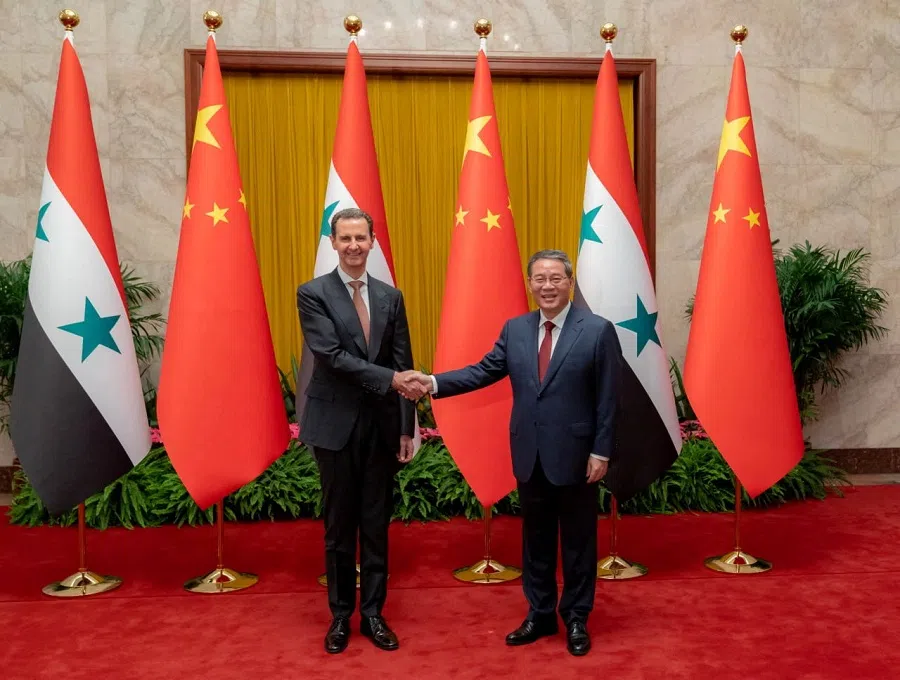
A successful IMEC would flesh out the skeleton of I2U2 that groups India, the UAE, Israel and the US. I2U2 was created last year to enhance cooperation on transportation, water, energy, space, health and food security.
A Middle East commitment to the IMEC, in deed and word, would counter recent progress in expanding China's regional influence.
Potentially, framed by a US defence agreement with Saudi Arabia and the UAE, IMEC would become part of what would most likely be a game changer in the regional balance of power in the US's favour.
The IMEC announcement follows China's brokering in March of reestablished diplomatic relations between Saudi Arabia and Iran, a dead-in-the-water Chinese offer to mediate the Israeli-Palestinian conflict, and China's recent embrace of Syrian President Bashar al-Assad.
Some analysts downplayed the IMEC's significance in the rivalry between the US and China.
The corridor "reflects the diversification of diplomatic relations in the current and emerging multipolar world," said Guy Burton, author of China and Middle East Conflicts: Responding to War and Rivalry from the Cold War to the Present.
"So, I don't think the idea that it will be an anti-China project really washes in the Gulf," Burton added.





